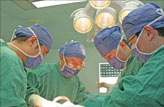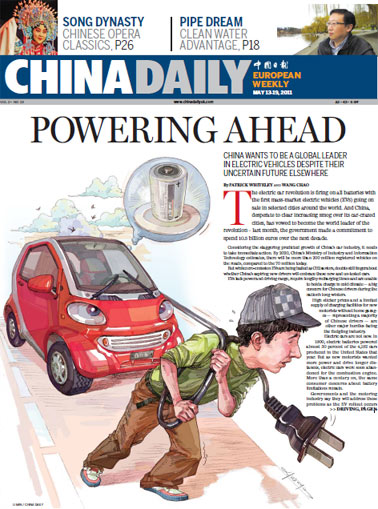Politics
Packets should list all additives: ministry
Updated: 2011-05-14 07:24
By Chen Xin (China Daily)
|
An official from the administration for industry and commerce in Guiyang, Southwest China's Guizhou province, inspects food additives in a market on May 5. [Ou Dongqu / Xinhua] |
New guidelines aimed at easing public concern over food safety
BEIJING - China's health authorities on Friday urged all food producers in the country to clearly list on packets any additives used in their products.
"All additives should be listed on the package and the contents should be precise, understandable and should not include any words to imply disease prevention or treatment functions of food products," said Chen Rui, deputy director of the food safety coordination and health supervision bureau of the Ministry of Health.
The name of a product ought to present what the food is and should not mislead customers. And warnings that additives in products may cause an allergy should also be clearly stated on the tag, he said.
Fan Yongxiang, a food safety expert with the Chinese Center for Disease Control and Prevention, said, as an example, that fruit-flavored drinks which are made up of edible pigments and flavors cannot be tagged as fruit juice.
"The revised regulation will ensure customers' rights to know and choose," Chen said.
Some new types have been added to the original list that dates back to 2007, and some outdated additives such as benzoyl peroxide, calcium peroxide and formaldehyde, which are no longer necessary in food processing techniques, have been deleted from the list.
The rule also states that additives should not be used to disguise rotten or damaged food.
"Most food additives listed in the rule have been widely used around the world. And the very small number of additives developed in China tested safe," said Yan Weixing, director of the nutrition and food safety institute at the Chinese Center for Disease Control and Prevention.
The public has become anxious about food safety after scandals involving melamine-tainted milk and clenbuterol-tainted pork. But Yan said the public should understand that food additives are different from those illegal inedible chemicals.
Meanwhile, the ministry is working on a blacklist of illegal additives. Persons or companies must not use such additives in their products, or they will face criminal charges or closure, officials said.
In the latest effort to tame abuse and the illegal use of food additives, Nanjing, in East China's Jiangsu province, now requires those buying additives to show their ID cards and record contact details at retail outlets.
E-paper

Green works
Wuxi becomes 'test case' for facing country's environmental challenges
The global rise of Chinese brands
China-EU trade on solid ground
ZTE banks on innovation
Specials

The song dynasty
There are MORE THAN 300 types of Chinese operas but two POPULAR varieties are major standouts

Cut above the rest
One of the world's oldest surgeons has performed more than 14,000 operations

From the ground up
Architect of Guangzhou Opera House has many projects under way, including 2012 Olympics.





